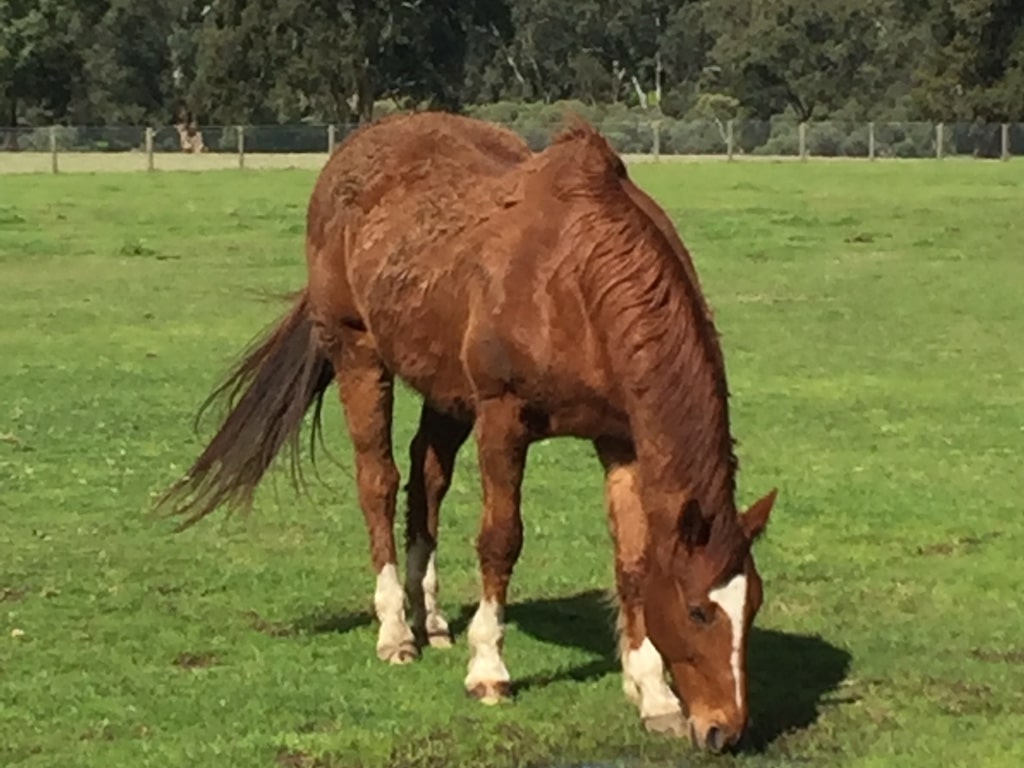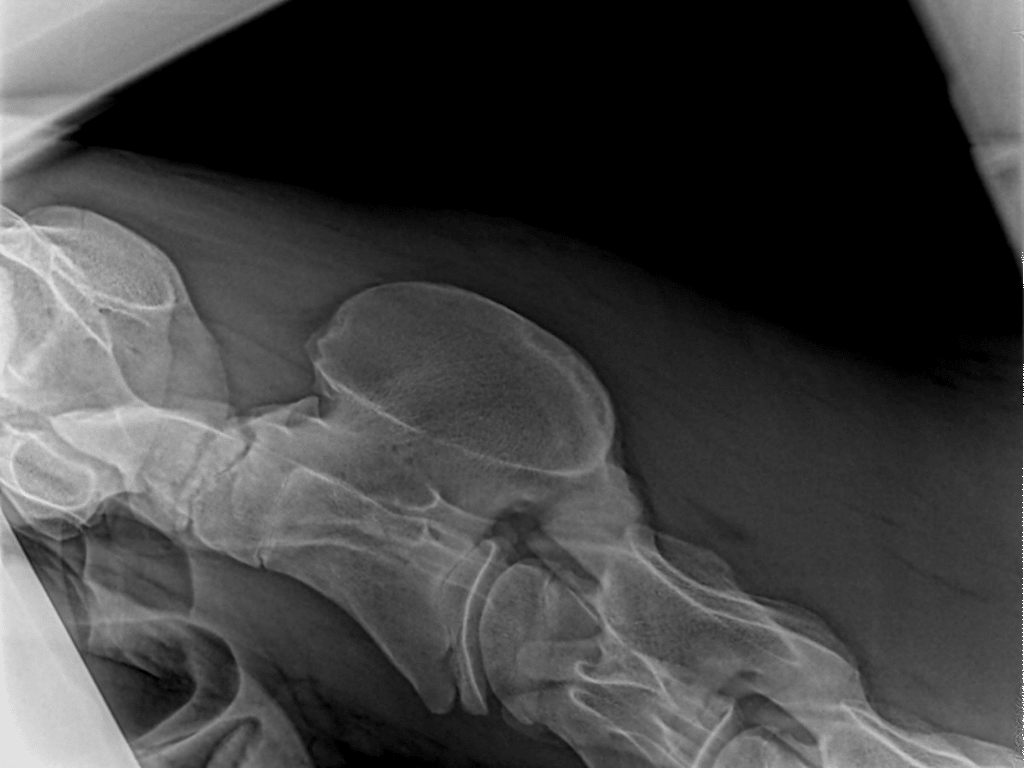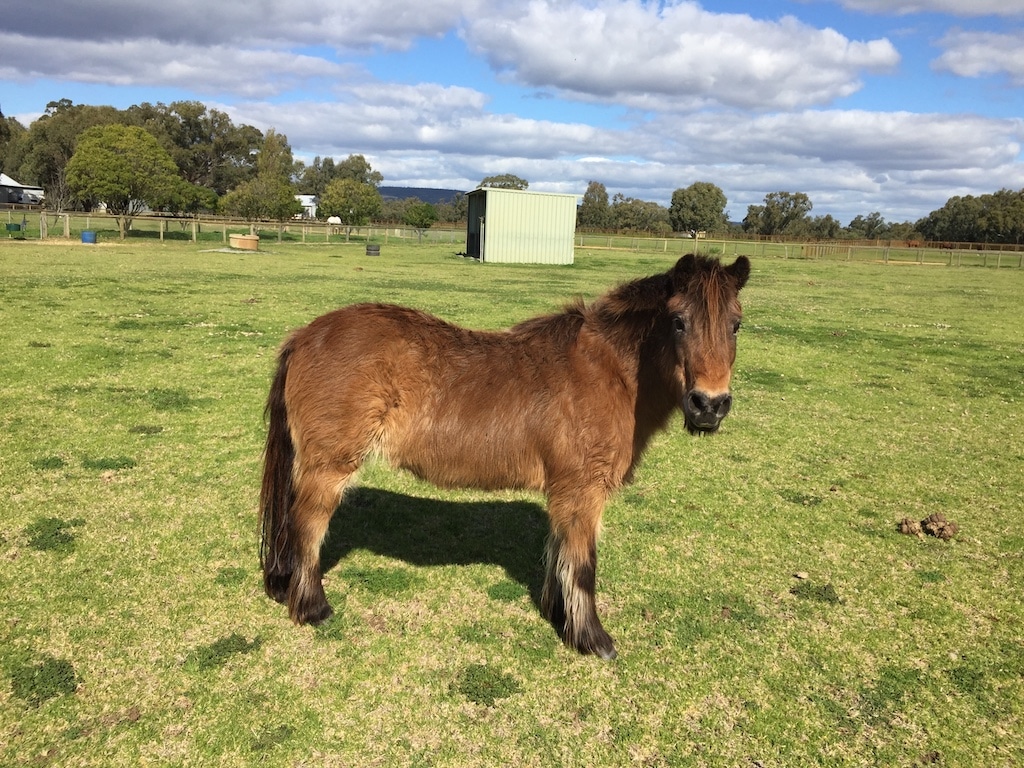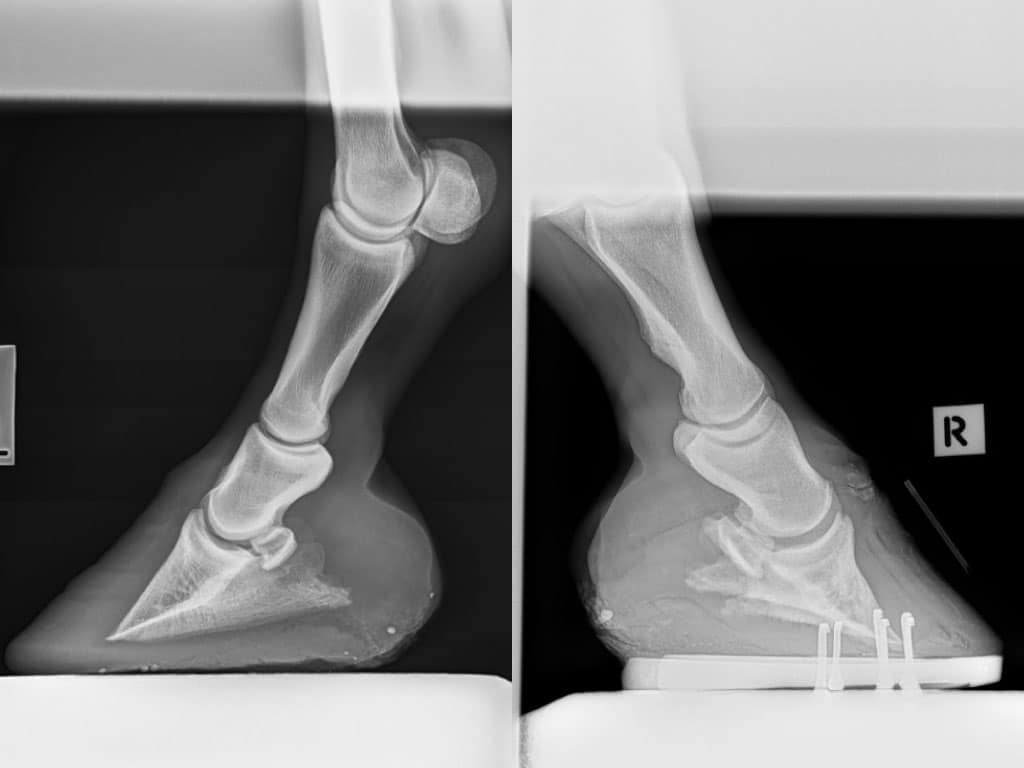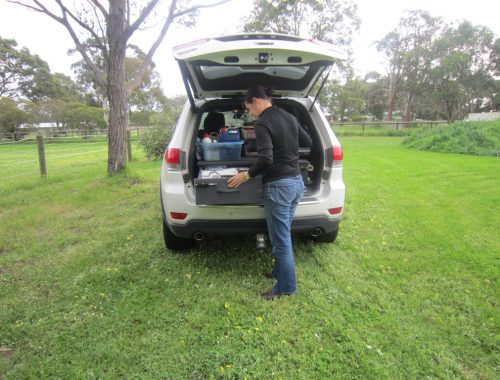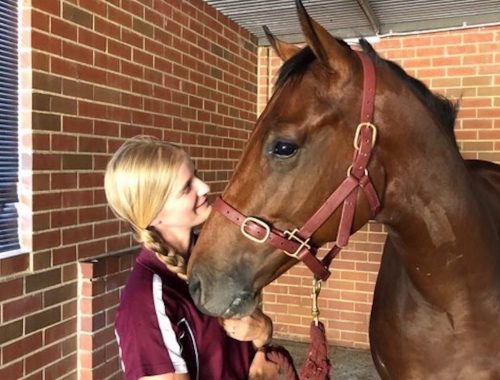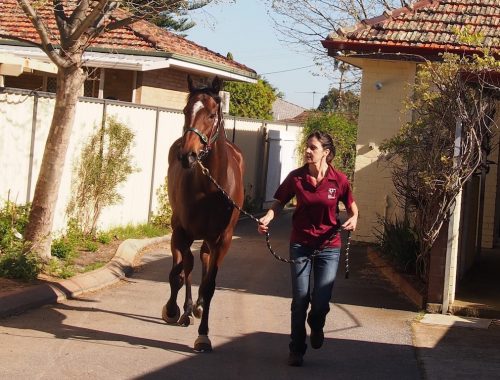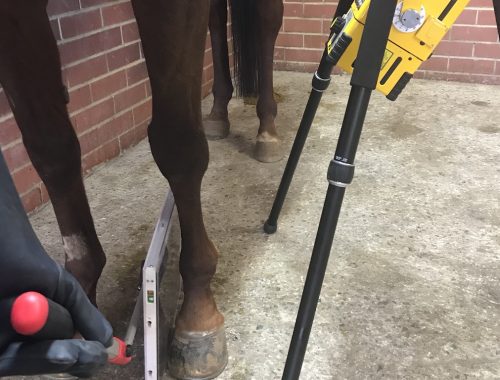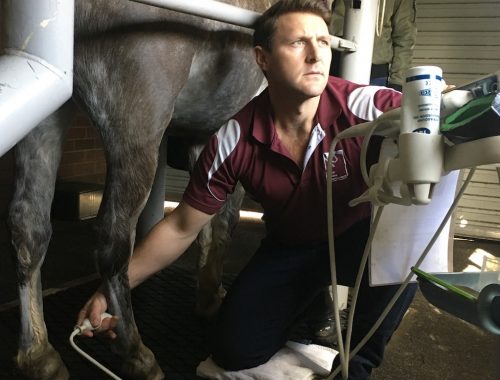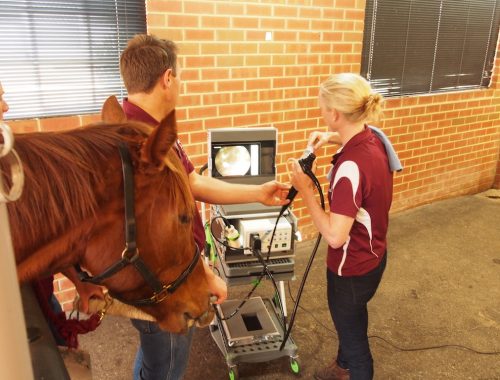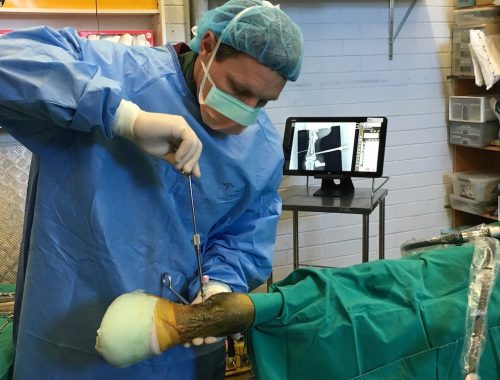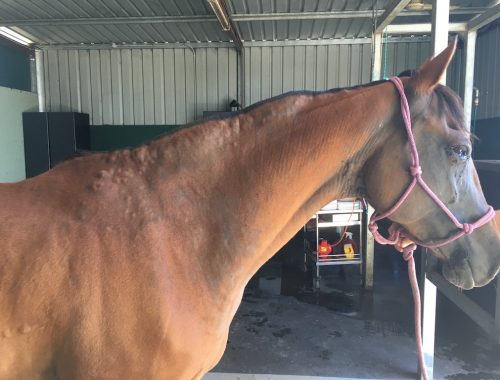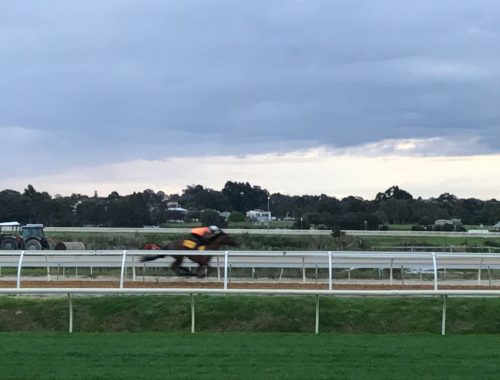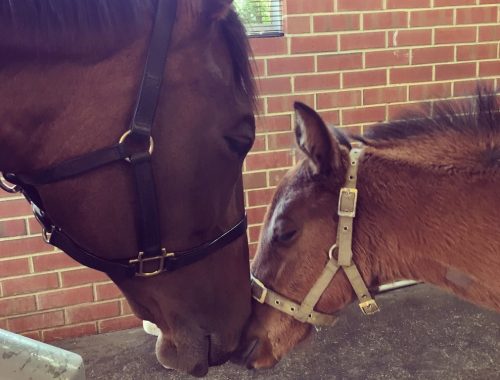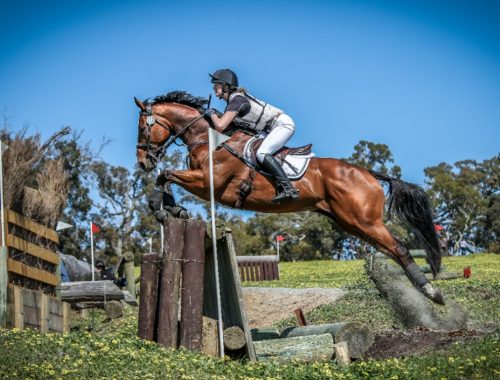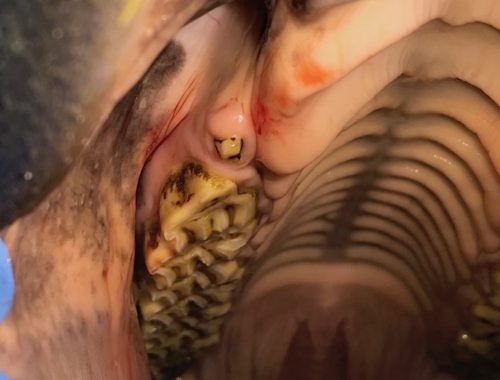Dr Annemarie Cullimore is a registered specialist in Equine Medicine, and if not undertaking medicine cases directly, liaises with our dedicated team of veterinarians to provide a 24-hour medicine service for the investigation and treatment of a diverse range of diseases and disorders, including respiratory, cardiac, gastrointestinal, liver, neurologic, muscular, ophthalmologic, dermatologic, renal (kidney), hematologic (blood) and endocrine/hormonal disorders.

Internal Medicine
Intensive Care Facilities
Intensive Care Facilities
Adult horses may require intensive care for multiple reasons; one of the most common conditions is colic. These horses need intensive monitoring and 24-hour care and supervision to allow for a speedy and complete recovery and provide the best possible outcome. Other diseases which require a high level of medical attention and close supervision include diarrhoea (colitis), diseases associated with significant amounts of haemorrhage, neurological disorders and some respiratory conditions.
Our stalls are equipped with facilities that allow delivery of continuous intravenous fluid infusions (drips). Large volumes of fluids are provided via gravity flow using specifically designed suspension systems. Ongoing monitoring of horses hydration, blood solids concentrations and blood lactate concentrations can be undertaken stall side as required to guide ongoing care of your horse.
We also have the ability to perform out-of-hours cell counts and cytolological evaluations of fluid samples, for example joint fluid aspirates or peritoneal fluid samples which is an important tool when determining whether or not a joint may be infected or whether a horse may need to undergo colic surgery.
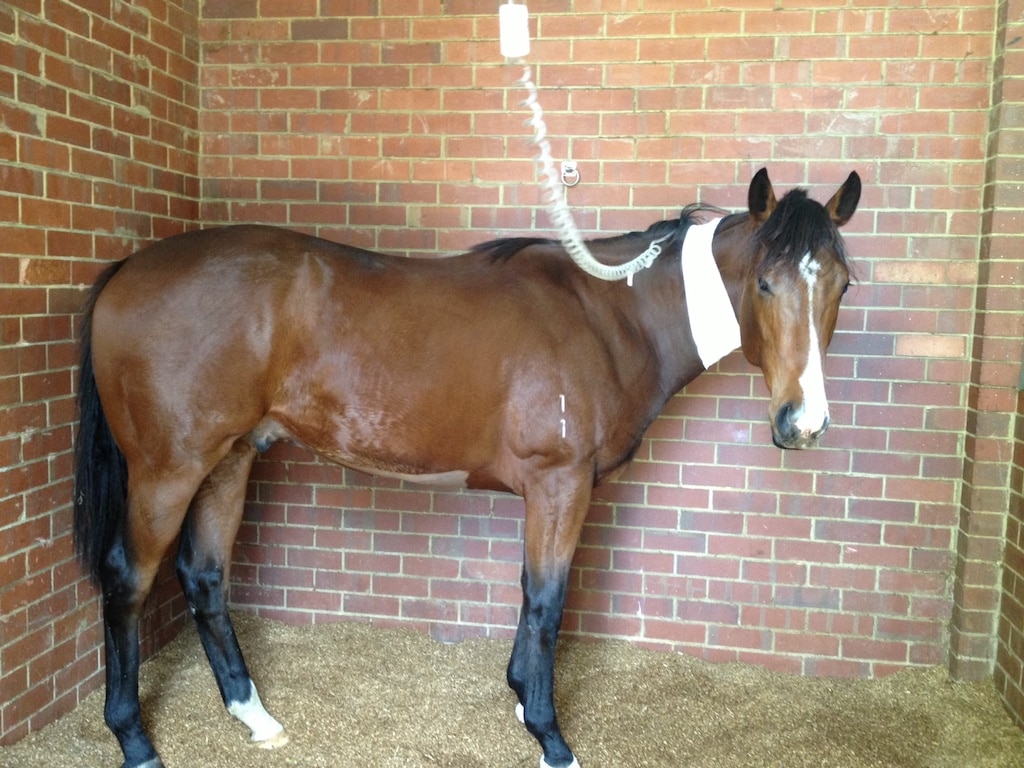
Respiratory Diseases
Respiratory Diseases
The respiratory system is a common source of problems in the horse, ranging from reduced performance to life-threatening illness. Depending on the nature of the problem, horses may be seen as day patients or admission to the hospital may be required to facilitate a more extensive work-up and treatment.
Videoendoscopy at rest allows close and detailed examination of the nasal passages, pharynx, larynx, guttural pouches, trachea and bronchi. Resting airway endoscopy is used in diagnosis of conditions such as recurrent laryngeal neuropathy (roarers), epiglottic entrapment, ethmoid haematomas and guttural pouch infections. It also allows sampling of fluid from the respiratory tract (tracheal wash or broncho alveolar lavage /lung wash) for the identification of infectious, inflammatory, blood or neoplastic conditions.
Overground dynamic endoscopy is available for the diagnosis of upper respiratory tract disorders in exercising horses.
Ultrasound assessment of the thoracic cavity, including the lungs, is important in the assessment of horses with pneumonia, lung masses or pleurisy. The surface of the lung can be examined and early accumulation of fluid in the chest cavity can be detected. Laryngeal ultrasound is also routinely undertaken in horses with a history of respiratory noise during exercise.
Radiography of the head is routinely performed in horses with sinus disease.
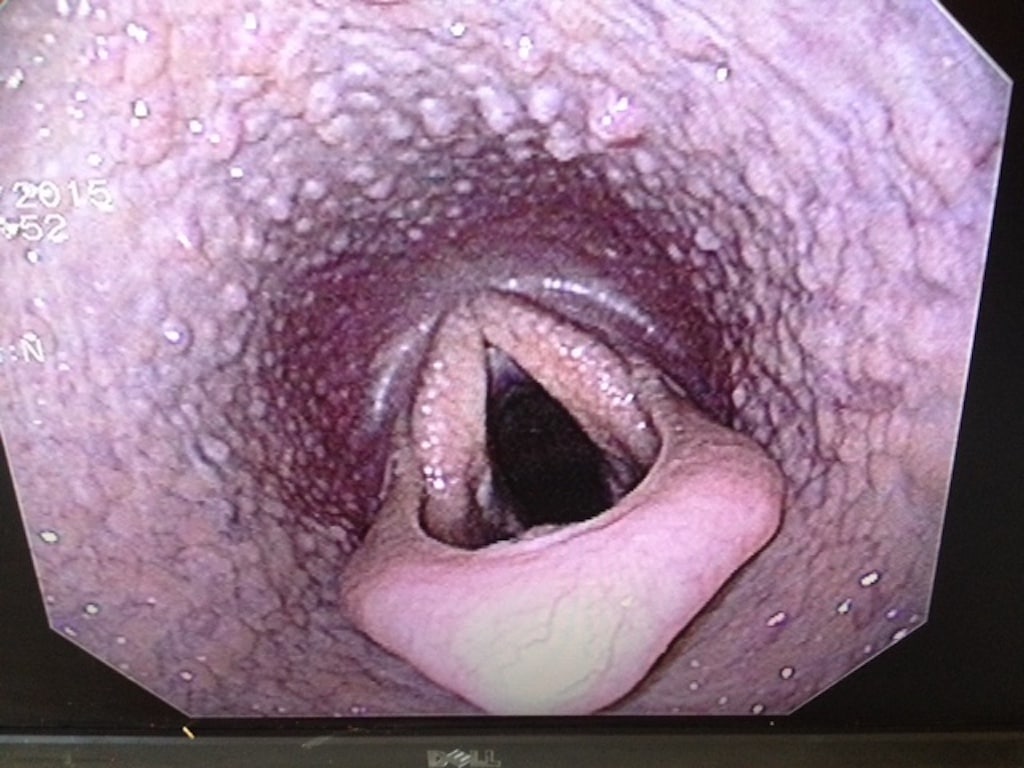
Cardiac Diseases
Cardiac Diseases
Heart abnormalities are relatively common in the horse and can range from being insignificant to life-threatening. Cardiac disease may result in heart murmurs, dysrhythmias, exercise intolerance or poor performance.
Heart murmurs are common in all types of horses and are often detected during pre-purchase examination. This can lead to considerable concern over their possible future impact on the horse’s suitability for intended use. Two dimensional ultrasonography of the heart (echocardiography), in combination with colour flow Doppler, pulse and continuous wave imaging, is an essential diagnostic tool used in the interpretation and significance of cardiac murmurs caused by valvular regurgitation or congenital abnormalities. It is also used to assess cardiac size and contractility.
Electrocardiography (ECG) is the gold standard for the identification and interpretation of abnormalities in cardiac rhythm (dysrhythmias). A detailed cardiac evaluation may include a combination of careful auscultation, echocardiography, and resting ECG and cardiac troponin measurement (a biomarker of an insult to cardiac muscle). These tests may be performed at the hospital or in the field if suitable conditions are available.
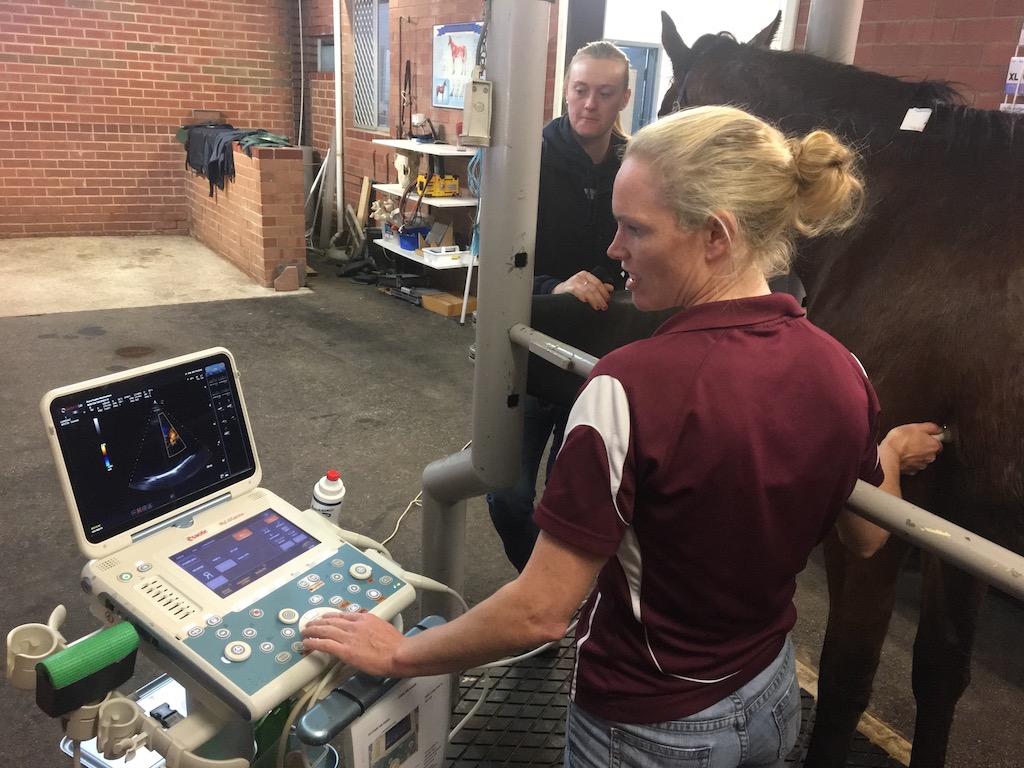
Gastrointestinal Diseases
Gastrointestinal Diseases
Diseases affecting the gastrointestinal system are common in the horse and horses may present with clinical signs of colic, diarrhoea, inappetance, weight loss or poor performance. Depending on the nature of the problem, horses may be seen as day patients or admission to the hospital may be required to facilitate a more extensive work-up and treatment.
Investigation into causes of gastrointestinal disease may include a thorough physical and dental examination, blood sampling, rectal palpation and faecal analysis, video endoscopy, abdominal ultrasound, ventral abdominal radiography (ponies only) and dynamic absorption testing.
Abdominal ultrasound is used routinely in the workup and assessment of colic cases. It is also an important diagnostic tool in the investigation of horses with weight loss and can assist in the detection of tumours, cysts and abscesses. Ultrasound guidance is frequently used to allow safe and precise biopsy of internal structures such as the liver and kidneys.
Video endoscopy allows close and detailed visualisation of many parts of the gastrointestinal tract including the oesophagus, stomach, duodenum, rectum and small colon. Gastrodudenoscopy is the only definitive way to diagnose gastric ulcers in horses. Gastric pH sampling may also be performed to assess the effectiveness of treatment.
Radiography of the ventral abdomen allows detection and quantification of sand – a common cause of colic in horses in Western Australia. This procedure can be performed on ponies and small horses and sequential radiographs allow monitoring of response to treatment in such cases.
Where appropriate, a medical investigation will be conducted in collaboration with our surgeons to perform procedures such as laparoscopy (keyhole surgery of the abdomen) to allow visualisation of the abdominal cavity. In some cases, full surgical exploration of the abdomen may be required.
Emergency services are available 24 hours a day, 7 days a week for investigation of colic and colitis.
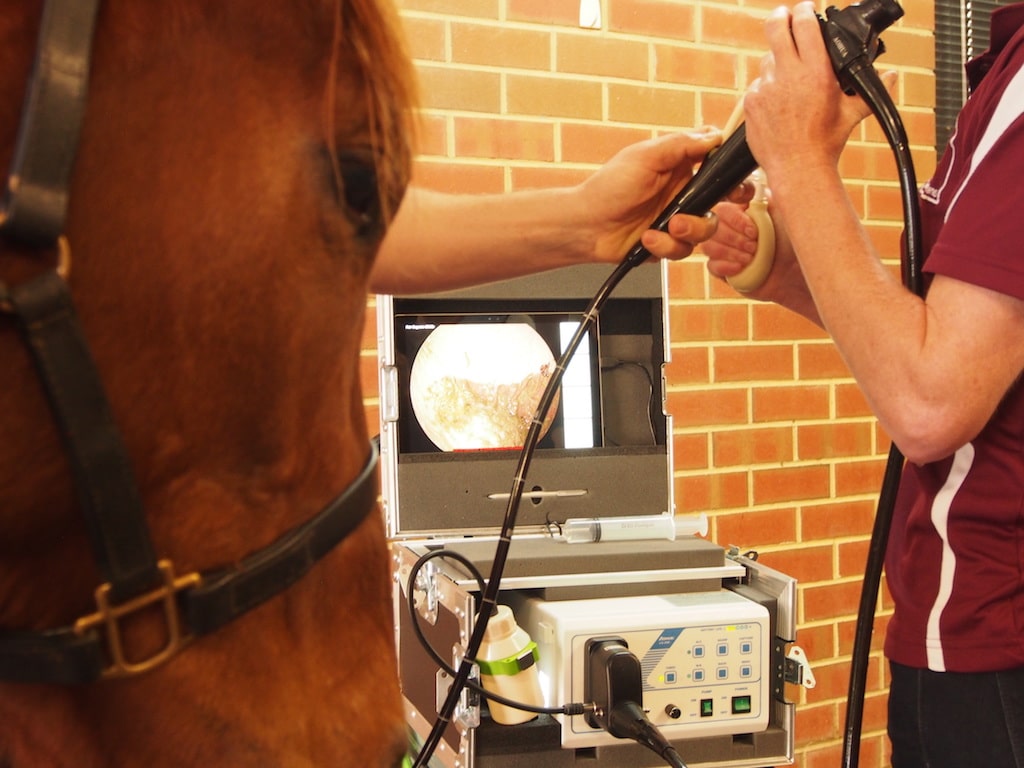
Neurological Disorders
Neurological Disorders
Neurological diseases in the horse can be very subtle and challenging both to diagnose and manage. Our skilled clinicians undertake thorough and careful neurological examinations to determine the nature of the disorder. Additional diagnostics such as radiography and cerebrospinal fluid analysis may also be performed.
Radiography can be useful to image the spinal column to identify areas of possible bone damage and spinal cord impingement. Cervical myelography may also be performed.
Cerebrospinal fluid (CSF) collection can be useful in the investigation of neurological cases and immediate analysis of CSF fluid may be performed on-site.
Muscular Disorders
Muscular disorders are relatively common in the horse and may contribute to exercise intolerance and poor performance. Diagnostic work-up of muscular disorder may involve blood sampling, exercise testing and muscle biopsy. Samples can be submitted to a neuromuscular laboratory in the US, which offers histopathological assessment of muscle biopsy samples to evaluate equine muscle disorders such as recurrent equine rhabdomyolysis (tying-up) and polysaccharide storage myopathy (PSSM).
Ophthalmology
Ophthalmology
Eye injuries and diseases in the horse are common and if inappropriately treated can result in permanent damage or even loss of the eye. We offer a comprehensive ophthalmology service including medical and surgical treatment of all types of ocular disease. With all eye cases, both our in house expertise and external opinion from specialist veterinary ophthalmologists is available.
Management of eye conditions such as complicated corneal ulceration is difficult in the field. These cases often require hospitalisation for intensive treatment to optimise outcome. We have a large care team of equine clinicians, nurses and students who provide round the clock care including frequent (often hourly) medication of the eye via subpalpebral lavage systems if necessary.
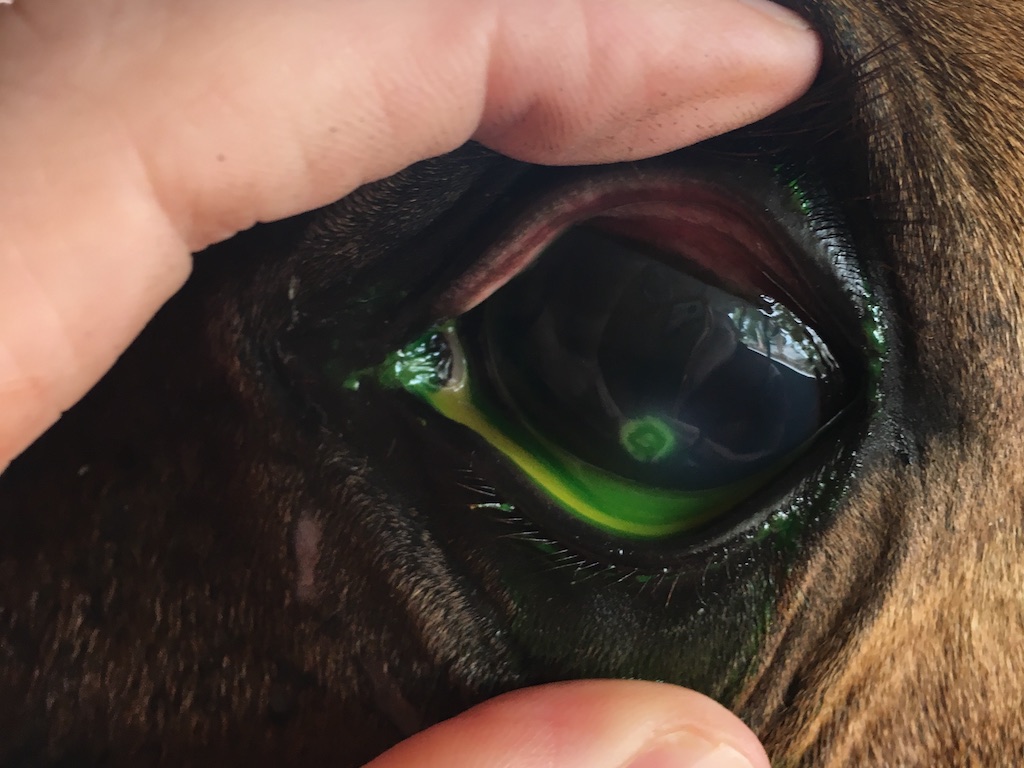
Dermatology
Dermatology
Skin diseases in horses are common and can be difficult to diagnose and frustrating to manage. We investigate and treat the full range of presenting clinical signs such as pruritis (itching), urticaria (allergic skin reaction), nodular diseases, scaling and crusting and pigmentary disorders (changes in skin or hair colour). Routine diagnostic tests such as skin scrapings and biopsies may be performed.
Skin tumours such as sarcoids and squamous cell carcinomas are common in the horse. Many different treatment options, including chemotherapy and cryosurgery, are available depending on the case.
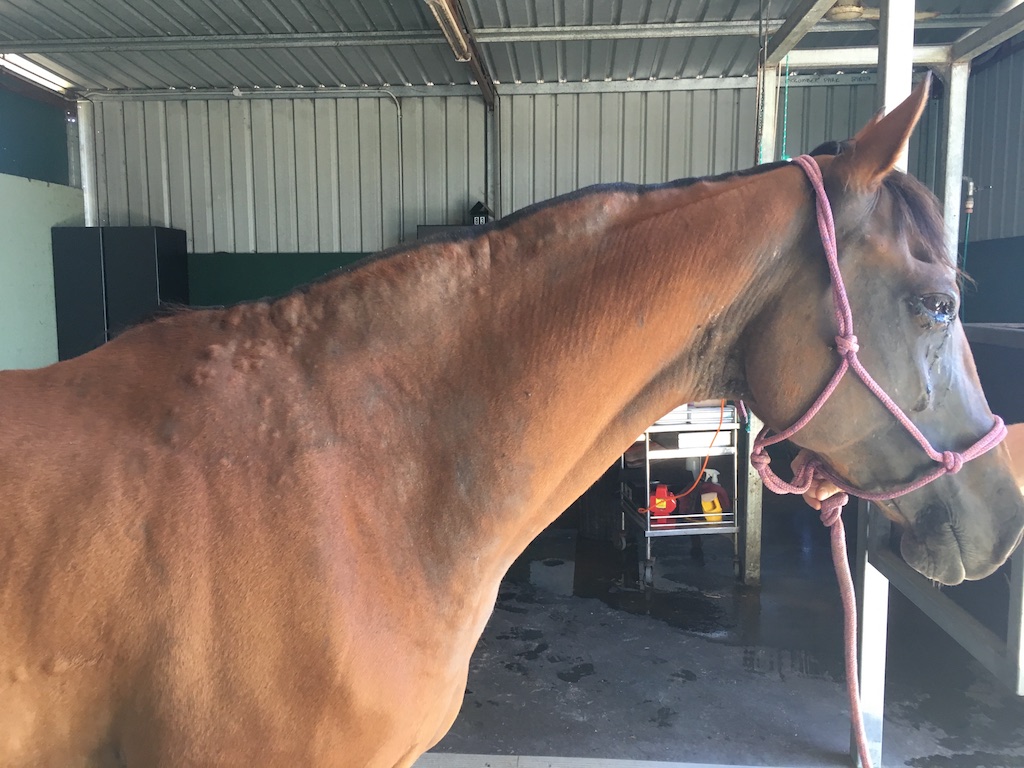
Endocrine Disease
Endocrine Disease
The diagnosis and treatment of many endocrine and metabolic diseases has become a lot more routine in horses over the past decade. A large amount of research has focussed on two of the most common diseases in this category – pars pituitary intermedia dysfunction (commonly known as ‘Equine Cushing’s Disease), and Equine metabolic syndrome.
Pars pituitary intermedia dysfunction (PPID) is a common endocrine disorder of aged horses. The disorder is caused by abnormal function of a small, hormone producing organ, the pituitary gland, which lies at the base of the brain. The middle lobe of the gland becomes enlarged over time, resulting in abnormal production of hormones. Horses with PPID may show clinical signs such as slow shedding of the coat or poor coat quality, laminitis, increased urination, increased drinking, muscle wasting, weight loss, lethargy, increased sweating, increased appetite and/or recurrent infections. Testing for PPID is easy and involves a simple blood test.
Equine metabolic syndrome (EMS) is characterised by three main features: obesity or regional adiposity (accumulation of fat in certain areas, particularly the neck), insulin resistance (IR), and laminitis in horses and ponies. Certain breeds or individual horses are predisposed and often referred to as ‘easy keepers’. These horses are very efficient at utilising calories and often require a lower plane of nutrition to maintain body weight than other horses, which is why EMS is a metabolic disorder. A stall side test is now also available for EMS.
Unfortunately, the majority of horses and ponies with PPID and EMS most commonly present to us with clinical signs of laminitis. At Ascot Equine Veterinarians, we endeavour to work closely with you and your farrier to diagnosis and treat both the laminitis and underlying endocrine or metabolic disease.
Geriatric Equine medicine
Geriatric Equine Medicine
Horse care is changing in Australia and we have an increased number of horses reaching their upper twenties and even thirties. Our geriatric horses (> 20 years old) require a bit more care and may experience a number of specific clinical problems as they get older.
Common sings associated with disease in the older horse include:
- Weight loss
- Stiff movement
- Laminitis
- Changes in coat quality, slow to shed coat
- Slow eating, dropping food
- Drinking more water, urinating more
- Diarrhoea
If you have any concerns regarding your older horse’s health Ascot Equine Veterinarians are here to help. We recommend routine veterinary examinations to tailor an individual preventative health care plan for your horse. Preventative healthcare plans include advice on nutrition, appropriate vaccination protocols, deworming, dentistry and hoof-care. In the older horse, we recommend that routine blood work is performed, at least every two years, to help identify problems early. The sooner we recognise problems, the better you and your horse will be in the long run.
